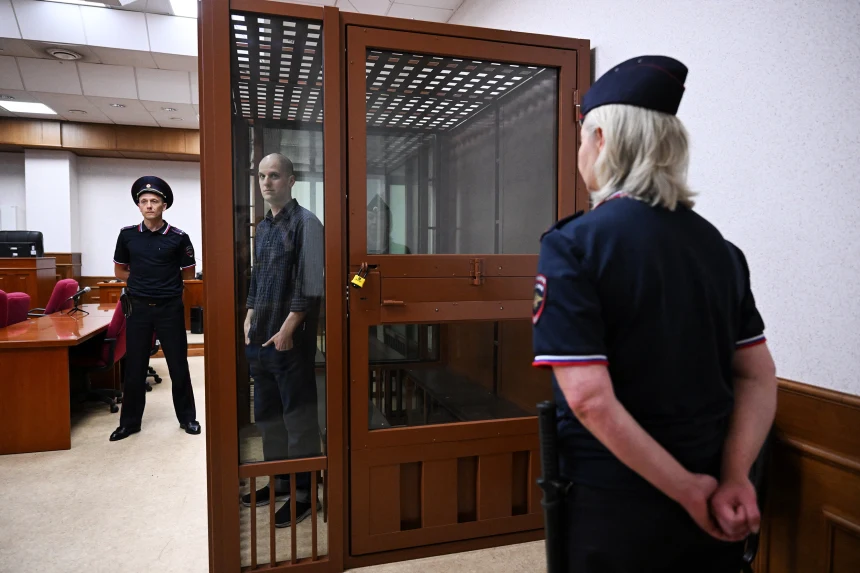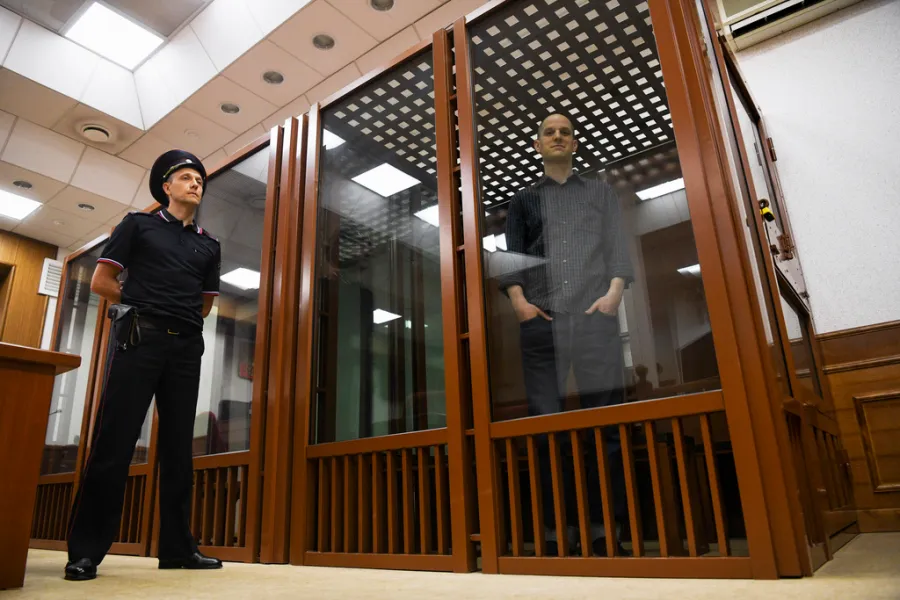The trial of Wall Street Journal reporter Evan Gershkovich, arrested on espionage charges in Russia, commenced behind closed doors in Yekaterinburg on Wednesday. The 32-year-old American journalist, detained for 15 months, faces allegations that he, his employer, and the U.S. government vehemently deny.
Gershkovich appeared in court in a glass defendant’s cage, his head shaved, wearing a black-and-blue plaid shirt. The proceedings, briefly open to journalists and U.S. Embassy officials, were quickly closed to the public, with the next hearing scheduled for August 13.

This case has drawn international attention as Gershkovich is the first Western journalist arrested on espionage charges in post-Soviet Russia. The U.S. State Department has declared him “wrongfully detained,” committing to assertively seek his release.
Jay Conti, executive vice president and general counsel for Dow Jones, described the trial as a “sham” with “bogus charges that are completely trumped up.” The Wall Street Journal has worked diligently to keep the case in the public eye, making it a significant issue in the lead-up to the U.S. presidential election.
Gershkovich faces up to 20 years in prison if found guilty, a verdict that seems almost certain given Russia’s high conviction rate. The case has raised concerns about the targeting of Americans and the broader implications for press freedom in Russia.
The Russian Prosecutor General’s office accuses Gershkovich of “gathering secret information” about Uralvagonzavod, a military equipment plant, allegedly on orders from the CIA. However, Gershkovich’s supporters maintain that he was simply carrying out his duties as an accredited journalist.

The trial’s closed nature means few details may become public. However, it has sparked discussions about potential prisoner exchanges between the U.S. and Russia, reminiscent of the 2022 swap that freed WNBA star Brittney Griner.
As the case unfolds, it continues to strain U.S.-Russia relations, already tense due to the conflict in Ukraine. It also raises questions about the safety of foreign journalists in Russia and the country’s broader approach to press freedom and international relations.
The Gershkovich case serves as a stark reminder of the risks journalists face in certain parts of the world and the complex diplomatic challenges that arise when press freedom clashes with national security claims. As the trial progresses, it will likely remain a focal point of international attention and a key issue in U.S.-Russia relations.
NBC



